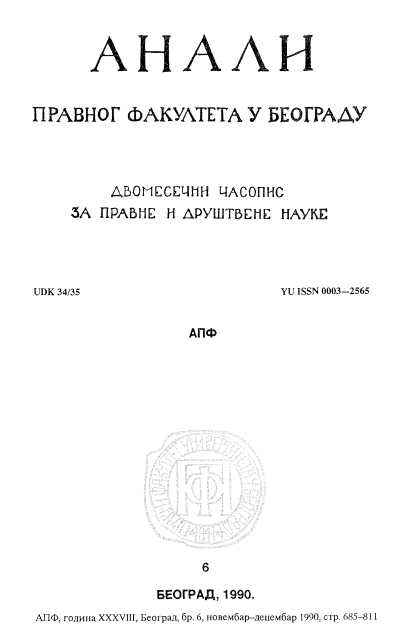КОЛЕКТИВНИ РАДНИ СПОРОВИ У УПОРЕДНОМ ПРАВУ - Основни принципи и методи решавања-
COLLECTIVE LABOUR DISPUTES IN COMPARATIVE LAW — Basic Principles and Methods of Settling —
Author(s): Branko A. LubardaSubject(s): Comparative Law
Published by: Правни факултет Универзитета у Београду
Keywords: Collective labour dispute; Reconciliation; Arbitration; Strike
Summary/Abstract: The subject matter of the article are the general notion of the collective labour dispute, both legal and interest — wise, as well as the basic principles and methods of settling these disputes. Especially elaborated are the solutions found in comparative law of developed countries with a long tradition of collective bargaining and negotiating. The principle of voluntarism which is characteristic for the philosophy and practice of collective negotiation in the sphere of labour, gives rise to the principle of extending priority to peaceful settlement of collective labour disputes, namely to reconciliation, mediation and arbitration. As a rule, the strike is resorted to only after peaceful methods have given no result. Conditions are analyzed also for effecting a legal strike, as well as legal consequences of this kind of strike, and the illigal one.
Journal: Анали Правног факултета у Београду
- Issue Year: 38/1990
- Issue No: 6
- Page Range: 725-735
- Page Count: 11
- Language: Serbian

